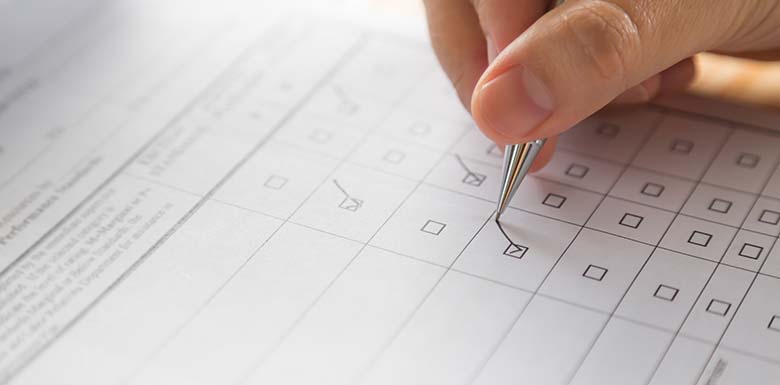
You should have your affairs in order before your passing. Unfortunately, when individuals fail to implement a robust estate plan, their families may be left to deal with a complex, long, and expensive probate process.
With that in mind, here is a quick checklist of the most important details you should include when crafting your estate plan in North Carolina:
Create Your Power of Attorney Forms
One of the first things you need to do when starting to draw up your estate plan is to create your power of attorney forms. While there are multiple types of powers of attorney, the two main power of attorney forms that should be implemented in any estate plan are:
- Healthcare Power of Attorney: A healthcare power of attorney allows you to designate the agent who will make medical decisions for you should you become incapacitated and therefore incapable of doing so yourself
- Durable Power of Attorney: Your durable or financial power of attorney allows you to designate who has the authority to make critical financial decisions on your behalf should you become incapable of doing so yourself, including real finance, taxes, and even gifts. Unlike a healthcare power of attorney, which only becomes effective when one becomes incapacitated, a durable power of attorney typically becomes effective upon execution.
Create Your Living Will
Next, you must draw up your living will, which details all your medical decisions in advance. Like an advanced directive, having your living will in place ensures that your healthcare providers and family follow your wishes regarding vital medical decisions related to the end of one’s life.
This might include whether you want extraordinary measures to be taken should you experience a medical emergency, whether you would like to be kept on life-support, and whether you would like to donate your organs upon your passing.
Assign Your POA Agents
You should assign power of attorney agents who you can trust. These individuals will make health and financial decisions on your behalf.
You must choose an agent, or agents, who will act in your best interest and always put your needs first. You need to be sure to go over essential decisions with your power of attorney in advance so they are not making these decisions without having any information regarding your decisions.
Take Inventory of Your Assets
You must take inventory of your assets to craft an effective estate plan. There are many types of assets you should be prepared to go over with your estate planning lawyer, including:
- An inventory of your property documents, including bills of sale, deeds, mortgage documents, and titles
- An inventory of your financial accounts, including insurance policies, checking and savings accounts, cryptocurrency wallet, annuities, and retirement savings accounts
- Any personal assets, such as family heirlooms, expensive jewelry, valuable artwork, or other collectibles
- All your financial instruments, including stocks, investments, holdings, certificates, and bonds
These are just a few assets that should be noted as part of your estate plan. Your attorney can review some of the case-specific types of assets that should be included. You might also want to take this opportunity to consider any debts you might have and work on paying those off, so they do not become your beneficiary’s responsibility after your passing.
Assign Your Beneficiaries For Payable on Death Accounts
Once you have assigned your power of attorney, drawn up your living will, and taken inventory of your assets, it is time to designate your beneficiaries. You must select individuals who will receive your money upon your passing. You can choose different beneficiaries for each type of account or have a single beneficiary for your entire estate.
Create a Last Will and Testament
A will, sometimes called a Last Will and Testament, is the most important piece to an estate plan. A will, among other things, controls the manner in which the assets in your estate are distributed and to whom those assets are distributed, whether that be outright or via a trust. A will also allows you to designate the executor of your estate, as well as a guardian for any minor children you may have at the time of your death. Your will may also include specific instructions for your funeral arrangements. A will is an opportunity for you to provide a roadmap for how you wish your family to handle your estate upon your passing. The failure to create a will may result in unintended consequences when it comes to the administration of your estate. Lawyers who work with wills, like those at Charlotte Estate Planning, are important to making sure you have your will set up properly.
Consider Creating a Trust
Trusts are different from wills, even though you can provide an inheritance for your family with both documents. With a trust, your assets are placed into a trust account, and the trust is administered by the trustee according to the trust document. While there are numerous types of trusts, the most common are Revocable and Irrevocable Trusts. While there are a number of different reasons to utilize a trust, most commonly, people use a revocable living trust to avoid probate and ensure the assets within their estate remain private.
Keep Documents in a Safe Place
Once your estate plan has been finalized, it is essential to keep the documents in a safe place. It would be in your best interest to obtain a safe or another fireproof and waterproof area for the documents to be placed.
However, avoid placing your estate plan in a safety deposit box because they often require a court order before the bank or other facility will open them. Make sure you have multiple copies of your estate plan in an emergency. Your executor, power of attorney, and trustees should all have copies of these documents.
Meet With a Knowledgeable Estate Planning Lawyer in North Carolina Today
When you are ready to get your estate plan in order but unsure how to get started, do not hesitate to contact Charlotte Estate Planning lawyer Ryan Stump. You can get the peace of mind you deserve with our firm on your side. Schedule your case assessment today by filling out our contact form or calling our office at (704) 766-8836.
View All Blogs



